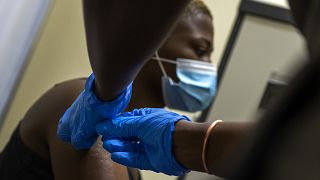Yellow Fever
Fewer People Will Lose Their Lives to Yellow Fever
The World Health Organisation (WHO) will change its policy to recommend using partial doses of the yellow fever vaccine in times of shortages during an outbreak — thanks to results of a recent study led by the Doctors Without Borders Epicentre in collaboration with the Kenya Medical Research Institute, Institut Pasteur de Dakar, and the WHO itself.
Most cases of Yellow Fever — a mosquito-borne acute viral hemorrhagic fever that causes 30,000 deaths per year, occur in Sub-Saharan Africa.
The disease as of yet has no cure.
Hence, prevention is essential — especially as predicting outbreaks is difficult and vaccine production takes up to 12 months to complete.
As this recent study revealed that administering one-fifth of a standard dose of the yellow fever vaccine is effective and safe, governments and health organisations will be able to manage shortages and save many more lives in periods of crisis.












01:25
MSF: Access to healthcare in Sudan 'almost impossible' as attacks on healthcare facilities increase
01:29
US medication safety agency approves biannual preventive HIV shot
01:37
Sudan faces rapidly-spreading cholera outbreak, 1000 daily cases in capital
01:02
As cholera cases surge, African leaders urge local production of vaccine
01:00
New cholera outbreak in Sudan kills 172 people in a week
Go to video
Conflict and disease put a strain on South Sudan's fragile healthcare system